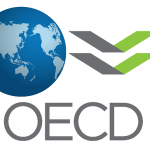Call for consultation: Draft OECD Recommendation of the Council on Open Government

The Organisation for Economic Co-operation and Development (OECD) has opened its draft recommendations of the Council on Open Government to the public for consultation, open until September 10, 2017.
The OECD defines open government as:
“a citizen-centred culture of governance that utilizes innovative and sustainable tools, policies and practices to promote government transparency, responsiveness and accountability to foster stakeholders’ participation in support of democracy and inclusive growth”.
Read the full announcement below, or at the OECD’s announcement.
—
DRAFT OECD RECOMMENDATION OF THE COUNCIL ON OPEN GOVERNMENT
DEADLINE FOR COMMENT – 10 SEPTEMBER 2017
To participate in the consultation please click here.
For more than a decade, the OECD has been at the forefront of an evidence-based analysis of open government strategies and initiatives across the world. Countries are increasingly acknowledging the role of open government principles as a catalyst for public governance, democracy and inclusive growth. Open government practices are changing the relationship between public officials and citizens in many countries, making it more dynamic, mutually beneficial and based on greater reciprocal trust.
Building on its existing work, in particular the Report on “Open Government: The Global Context and the Way Forward”, the OECD is now developing a new OECD Recommendation on Open Government, which aims to help the countries that will adhere to it, to design and implement successful open government reforms by identifying a clear, actionable, evidence-based, and common framework for the governance of open government. *
ONLINE PUBLIC CONSULTATION
The Recommendation will provide future adherents with a comprehensive overview of the following five areas:
1) how to develop and implement open government strategies and initiatives
2) how to establish a specific environment to enable open government to flourish
3) how to promote open and inclusive policymaking through stakeholder’s participation
4) how the government can foster a culture of monitoring and evaluation of open government practices
5) how to encourage a paradigm shift from open government towards open state (when all public institutions of the executive, parliament, and the judiciary, independent public institutions, and all levels of government join forces and collaborate with civil society, academia, the media, and the private sector to design and implement a reform agenda to make public governance more transparent, accountable and participatory).
The draft Recommendation is being circulated publicly for consultation until 10 September 2017. It is still a work in progress at the OECD and the content may be subject to modifications, including in order to take account of comments received through the public consultation. Contributions will be analysed and the OECD may publish them only in an aggregated and anonymous manner. Information on the contributors (i.e. nationality, gender, profession, etc.) will be collected for statistical purposes only.
Governments, civil society organizations, international organisations, the private sector, academics and individuals are encouraged to participate in this consultation and help shape the future of the governance of open government.
For more information/any issues faced, please contact opengov@oecd.org.
NOTES
* The OECD defines open government as “a citizen-centred culture of governance that utilizes innovative and sustainable tools, policies and practices to promote government transparency, responsiveness and accountability to foster stakeholders’ participation in support of democracy and inclusive growth”.

